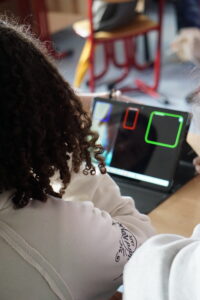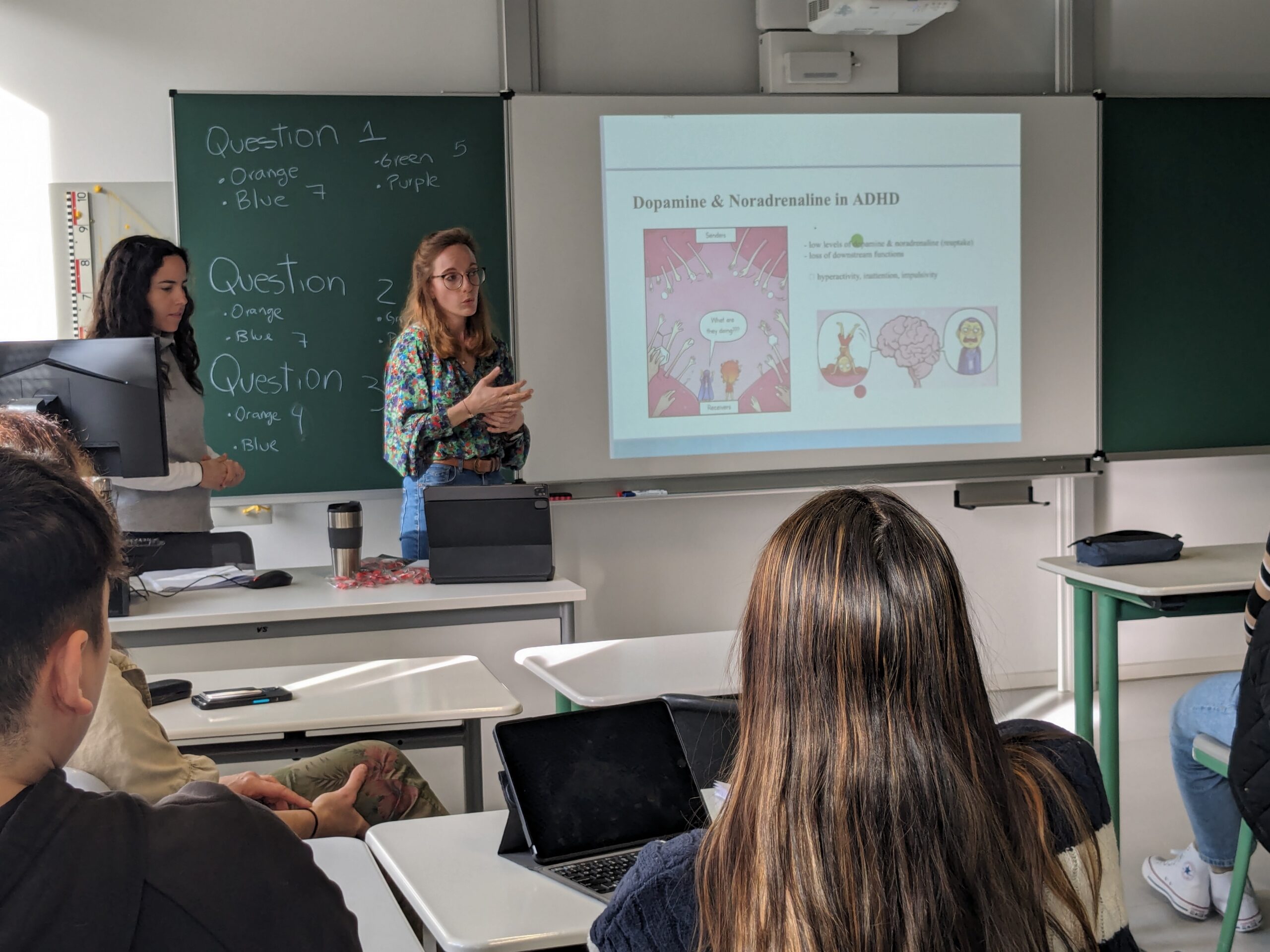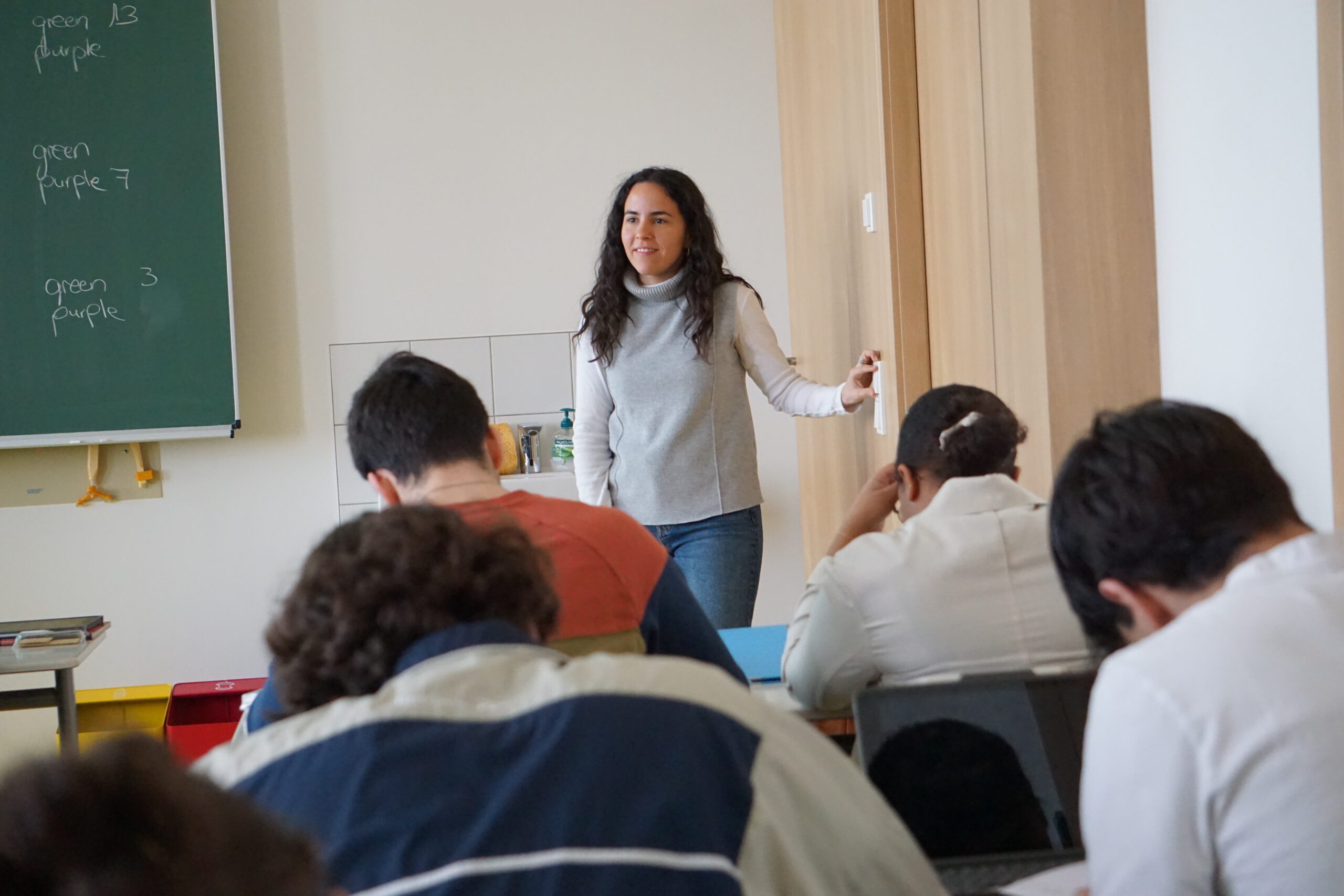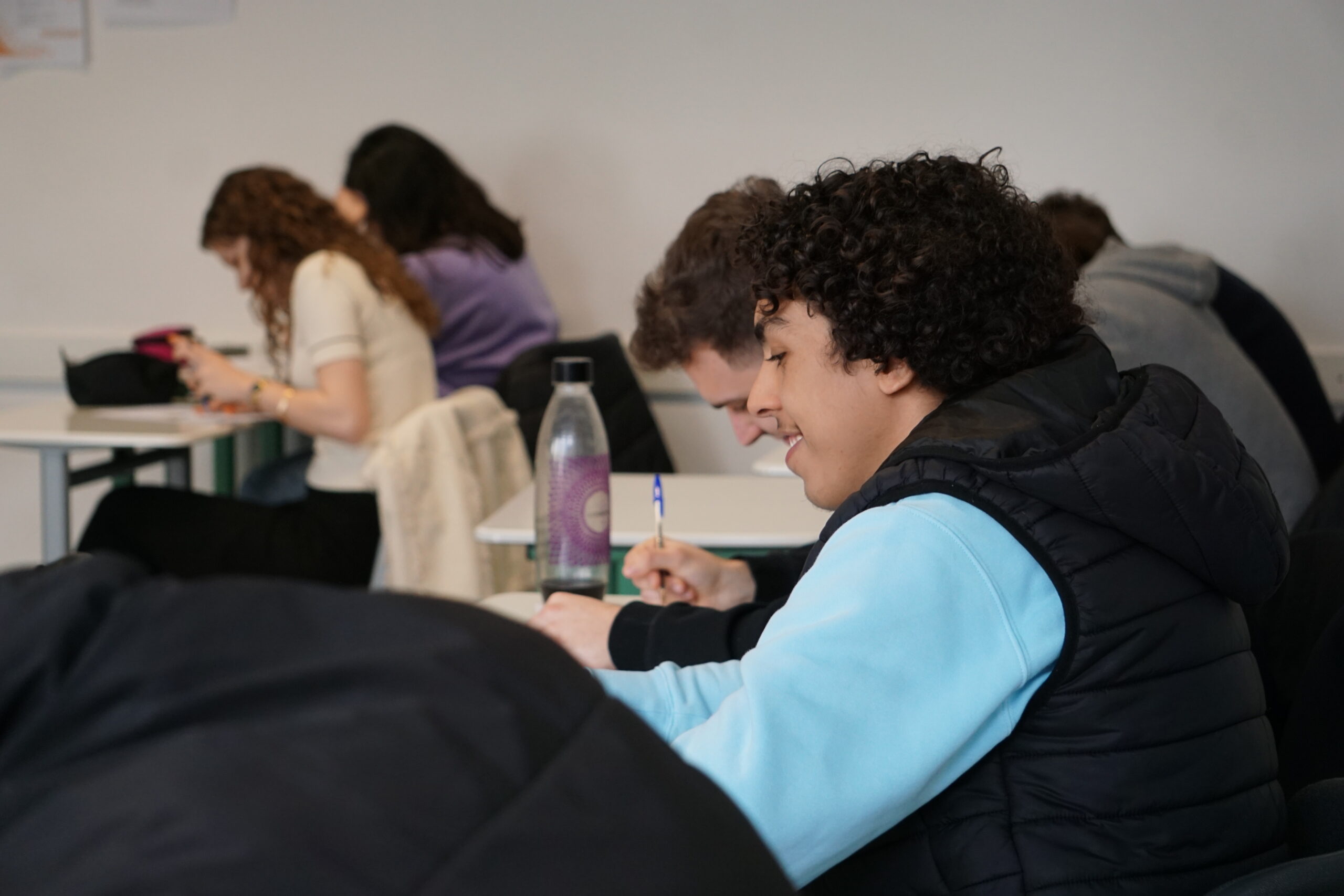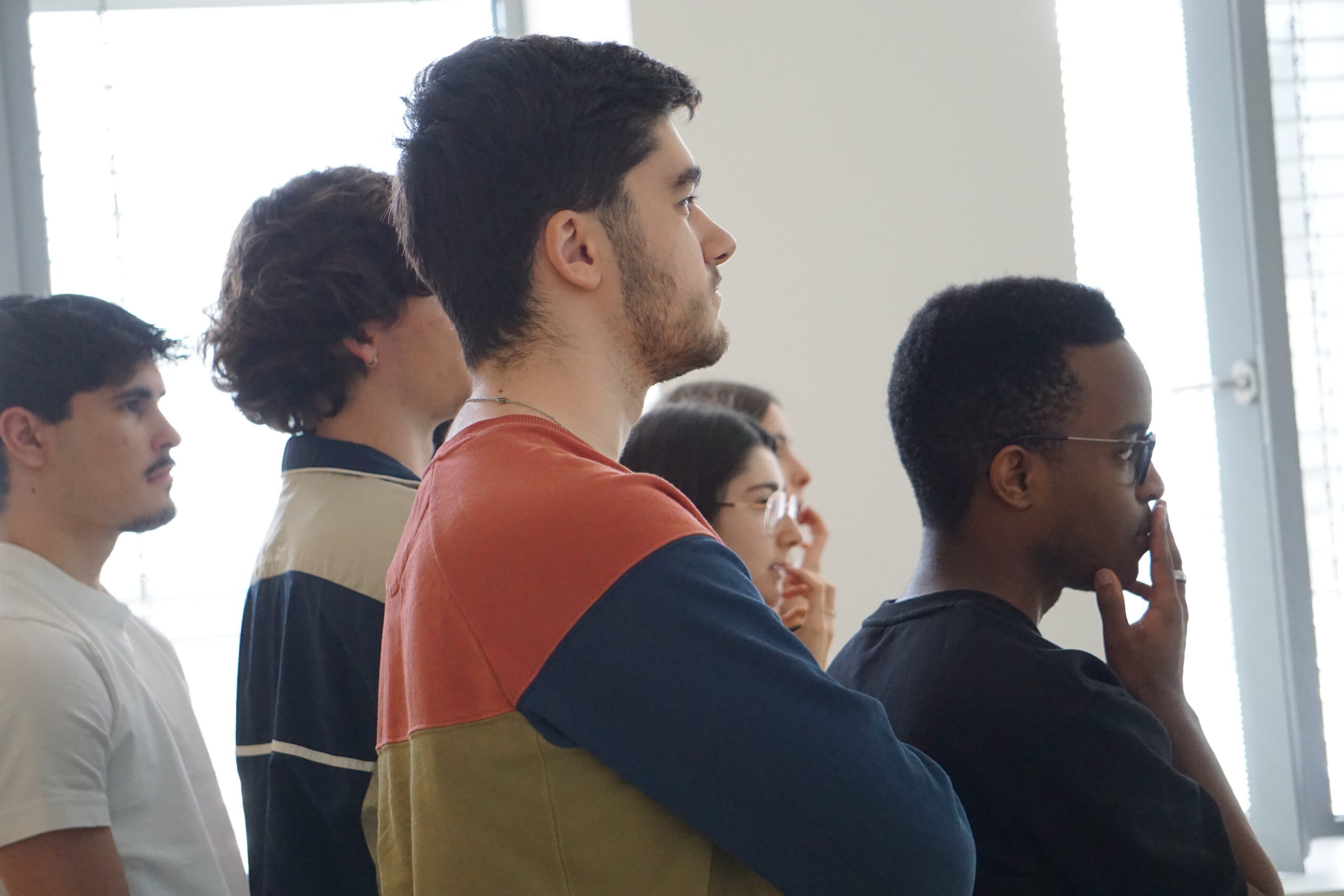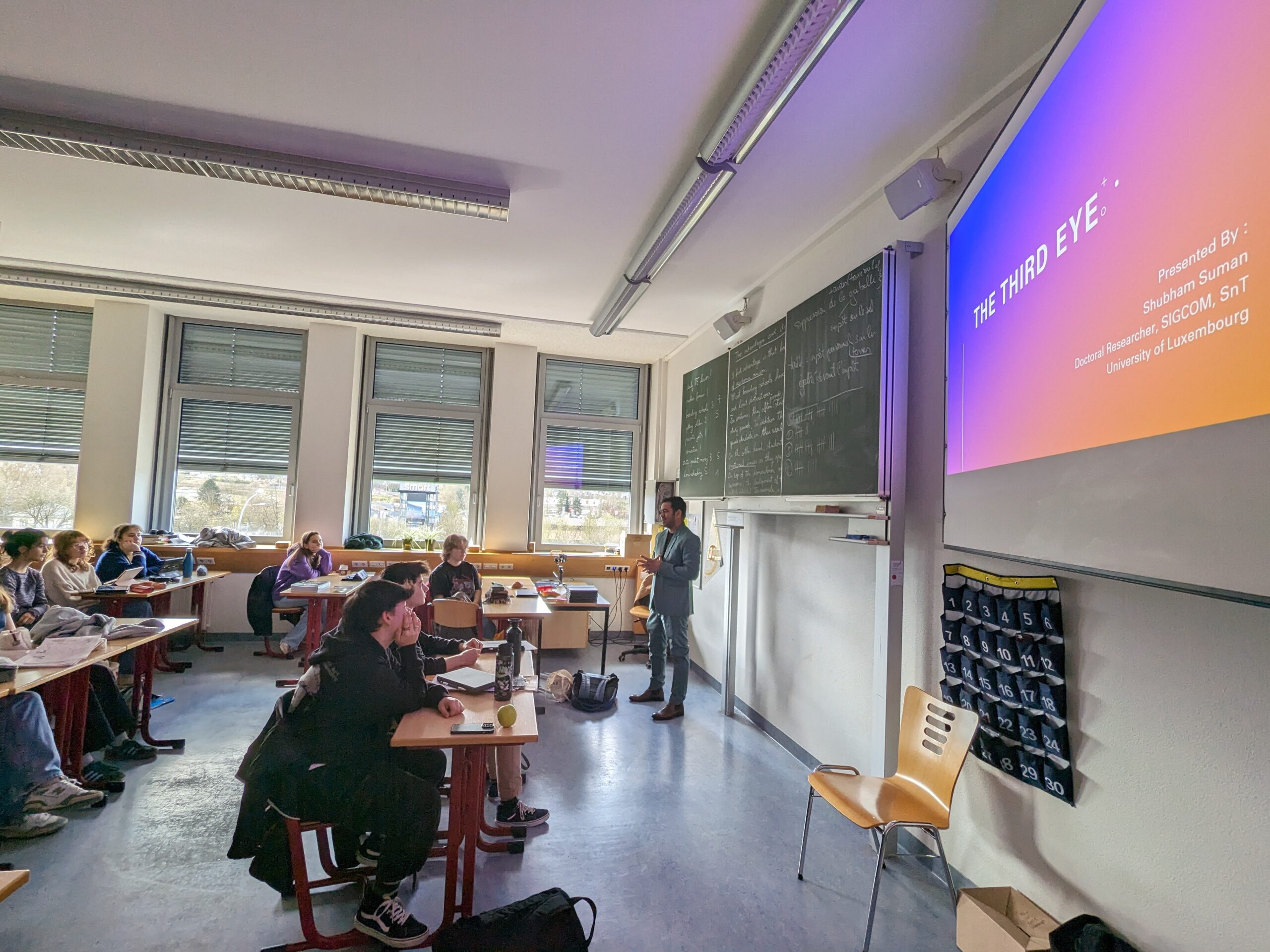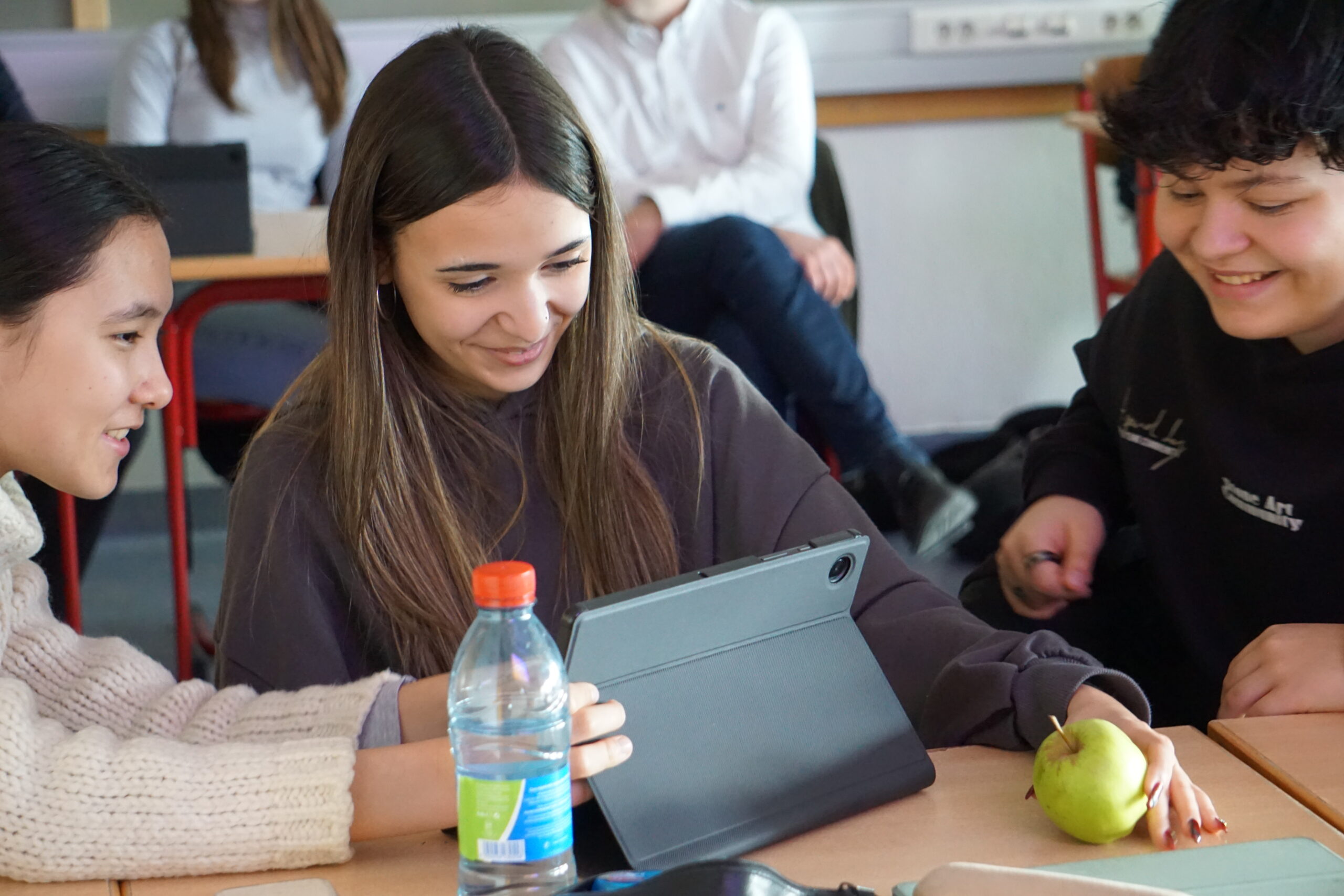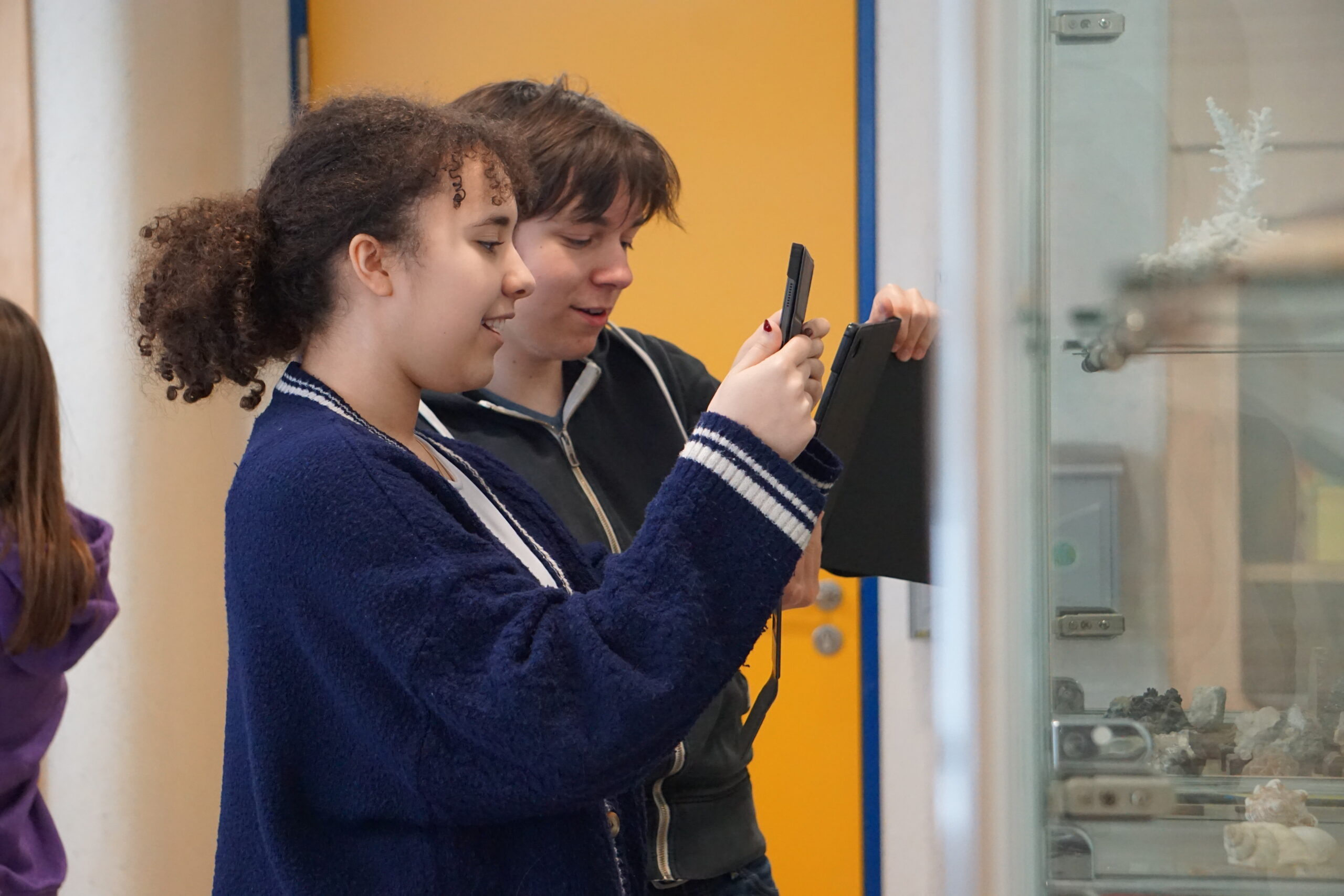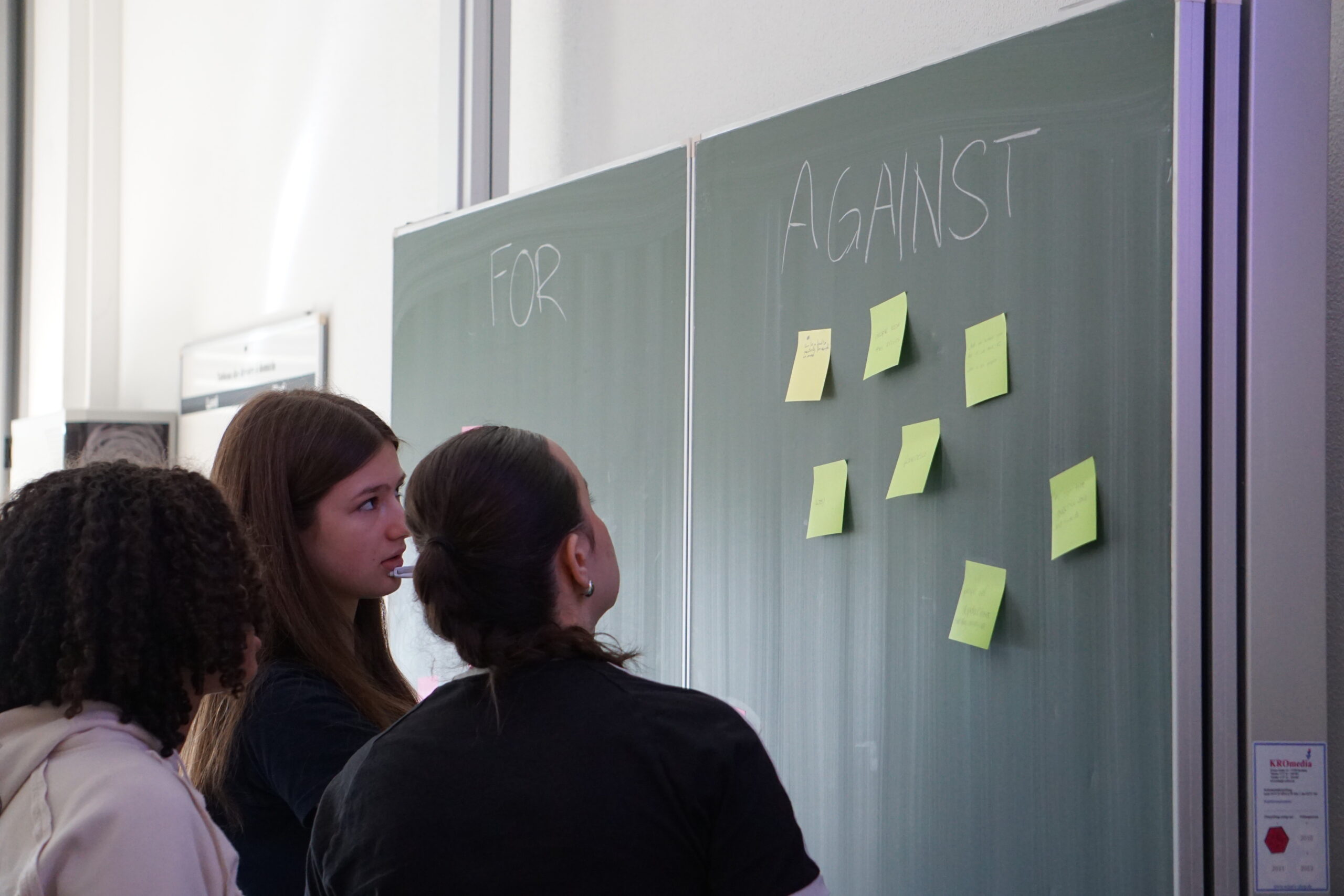50 secondary school pupils participated in science workshops held by scientists from Luxembourg. They shared their knowledge about artificial intelligence (AI) and attention deficit hyperactivity disorder (ADHD) in an interactive way.
Pupils from Luxembourg experienced a different kind of lesson in March. Three doctoral candidates from the University of Luxembourg came to visit them with interactive activities around their research topics.
A change of perspective
Two classes at the Lycée Hubert Clément in Esch-sur-Alzette learned more about the effects taking place in the brain of people with ADHD (attention deficit hyperactivity disorder) in a workshop called “Why so distracted?”. ADHD is a neurodevelopmental disorder that causes the brain to process stimuli in a different way than in neurotypical persons.
“We tried to make the workshop participants step into their shoes with two exercises”, says Angelica Mendes, one of the two visiting scientists and doctoral candidate at the Faculty of Humanities, Education and Social Sciences (FHSE). “One of them made them experience overstimulation and how it affects their performance”, adds Félicia Jeannelle, a doctoral candidate working at the Laboratoire National de Santé (LNS).
Detecting objects with AI
Another class at the Lycée Aline Mayrisch in Luxembourg was visited by Shubham Suman, a doctoral candidate from the Interdisciplinary Centre for Security, Reliability and Trust (SnT). In the context of the school’s Science Days he offered an interactive workshop called “Third Eye? You have it too”. After an introduction on how artificial intelligence can be used to detect objects, the pupils could test an object detection app designed by Shubham himself.
The workshops have been offered to secondary schools in Luxembourg and realized in the context of the DESCOM project, which offers trainings in science communication to early-career scientists. Doctoral candidates were asked to develop and carry out workshops about specific topics. During the development of the workshops, they were mentored by Nadia Battello, a former graduate of the University of Luxembourg turned science communicator.
Science comics
The topics of the workshops are based on the respective science comics that have been published in volume 3 of LUX:plorations. They tell the story of a young girl with ADHD exploring what might be happening in her brain as well as the potential of using AI to improve the power grid.
LUX:plorations is available for free and in five languages (English, French, German, Luxembourgish and Portuguese). It can be downloaded and read via their Science comics website. Hard copies of the comic can be found on the University’s campuses, for instance at the Luxembourg Learning Center and the MSA Auditoires on Campus Belval, the JFK building in Campus Kirchberg or at the Luxembourg Science Centre.
LUX:plorations and the respective science workshops are supported by the Luxembourg National Research Fund (FNR). The project was made possible thanks to the Faculty of Science, Technology and Medicine (FSTM) as well as the Doctoral School in Humanities and Social Sciences (DSHSS) of the University of Luxembourg and under the lead of DESCOM, a project that aims to support interactions between academia and the public by providing different modes of training in science communication as well as organising and supporting outreach activities.
